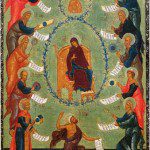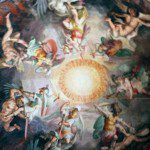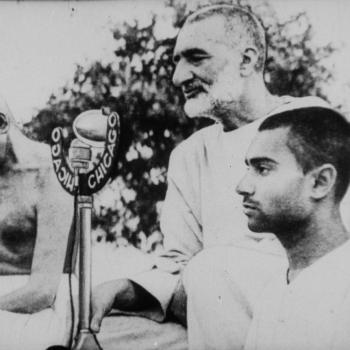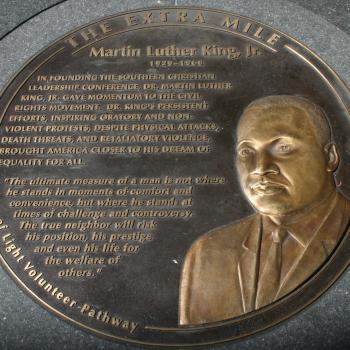
10. Paradise Towers
The first season of the Seventh Doctor, Sylvester McCoy, is often decried as one of the low points of the long history of the show. I can understand why. The BBC was ready to give up on the series, and so were working to undermine its success by putting stricter limits on its budget. The stories were often put together on the cheap, the scripts not as polished as they could be, and the direction often left the viewer wondering if the series was trying to create a revival of 60s camp.
And yet, I loved the way Sylvester McCoy played the Doctor, even if I did not always like the stories. To me the highlight of the season was the second story, Paradise Towers, and not the typical fan favorite, Dragonfire.
The story was, to be sure, quite limited in its budget, which can be felt while watching it, and so the director and actors involved did what they could with the material, often turning it into camp, creating perhaps the feel for the season. And the camp worked for the story, adding the humor necessary for the episode to flow and be taken seriously. For in the midst of all of this campy, there was a very serious tale being told, a religious allegory which is quite critical, indeed, hostile to God. It is a nihilist drama where God has gone crazy and needs to be dethroned. While I clearly do not agree with the theme, I enjoyed how it is presented, that is the story itself, and can appreciate the critical questions which were raised, making it one of my favorite Doctor Who stories in general. Its humor allows it to do what the far inferior but similar themed Rings of Akhaten barely could do: entertain the audience.
The Doctor and his companion, Mel, want to go on vacation and choose Paradise Towers, supposedly a work of architectural genius by “The Great Architect” Kroagnon. It is like a great city contained within a huge building, with the top of the building being a glorious pool representing, as it were, paradise. Living in the city are the last remnants of a civilization who were left behind why most of its inhabitants had been recruited for a war. There are a few groups of strays found within: the Caretakers, the police, who make sure the rule of law is enforced (like priests reading a Bible); the Rezzies, the elderly residents who were too old to join in the war efforts who over time have become cannibalistic; the Kangs, various female youth who had been left behind and formed gangs, and Pex, a lone male of military age who had been too afraid to go to war and yet, not being a Caretaker,had no excuse for remaining as he did. In the years since they had been left behind, the city had become destitute; it is breaking down, with the Kangs leaving all kinds of graffiti all over the place, and the Caretakers trying, the best they can, to have the place kept in good repair. The damage which has been done upset Kroagnon, who, having been alive as a kind of ghost in the machine in the basement has taken control of and directs the robotic cleaners in the city, using them to avenge the harm done to his creation. Kroagnon decides there is only one final solution: to cleanse the city of life, and the way he does this is take over the Chief Caretaker’s body (representing a kind of incarnation), and personally do what he can to purify the city. The Doctor, not taking kindly to such destruction, has to find a way to bring the various groups come together and overthrow the Great Architect so as to save them from the horrible death Kroagnon has in store for them.
The Great Architect clearly represents God, and so the contention between the Doctor and the Great Architect represents the conflict of humanity, of the intelligent atheist, with a God who would judge and condemn his creation for defiling creation. While I believe the allegory is deficient because it ignores the way God seeks to restore and not destroy creation, I certainly understand why this kind of critical examination is needed and why, even if I disagree with its nihilistic conclusion, I find it to be one of my favorite Doctor Who stories. It is critical of a simplistic but much believed view of God, a view which needs such criticism to help us move beyond it. Adherents to religion need to see how and why their presentations of religion are understood by others, and in showing how their views appear to others, they will know why they need to produce something better, more beautiful, to attract people to the true beauty of faith. This story helps expose the ugliness which has infected religious belief for centuries, and for that reason alone, it is an important story in the Doctor Who canon.













